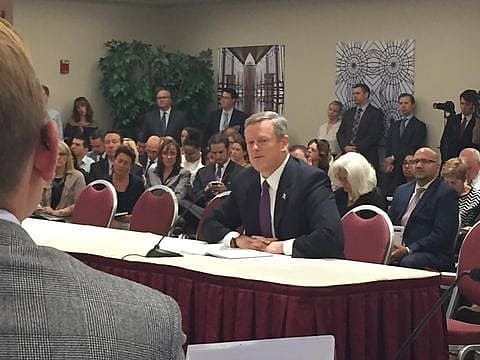Baker may tackle opioid abuse epidemic this week

BOSTON – Gov. Charlie Baker, who made dealing with drug addiction a priority as he took office in January, is expected to put forward a proposal for tackling the issue this week with a goal of getting comprehensive legislation passed by early 2016.
The recommendations are likely to extend steps to prevent opioid drug abuse and provide treatment that may be funded through almost $28 million included in a supplemental budget measure that recently passed the Senate. According to a Boston Globe report on Sunday, Baker plans to call for giving hospitals the power to hold drug abusers against their will for three days to give medical professionals time to evaluate them and seek legal permission to hold them longer for treatment.

